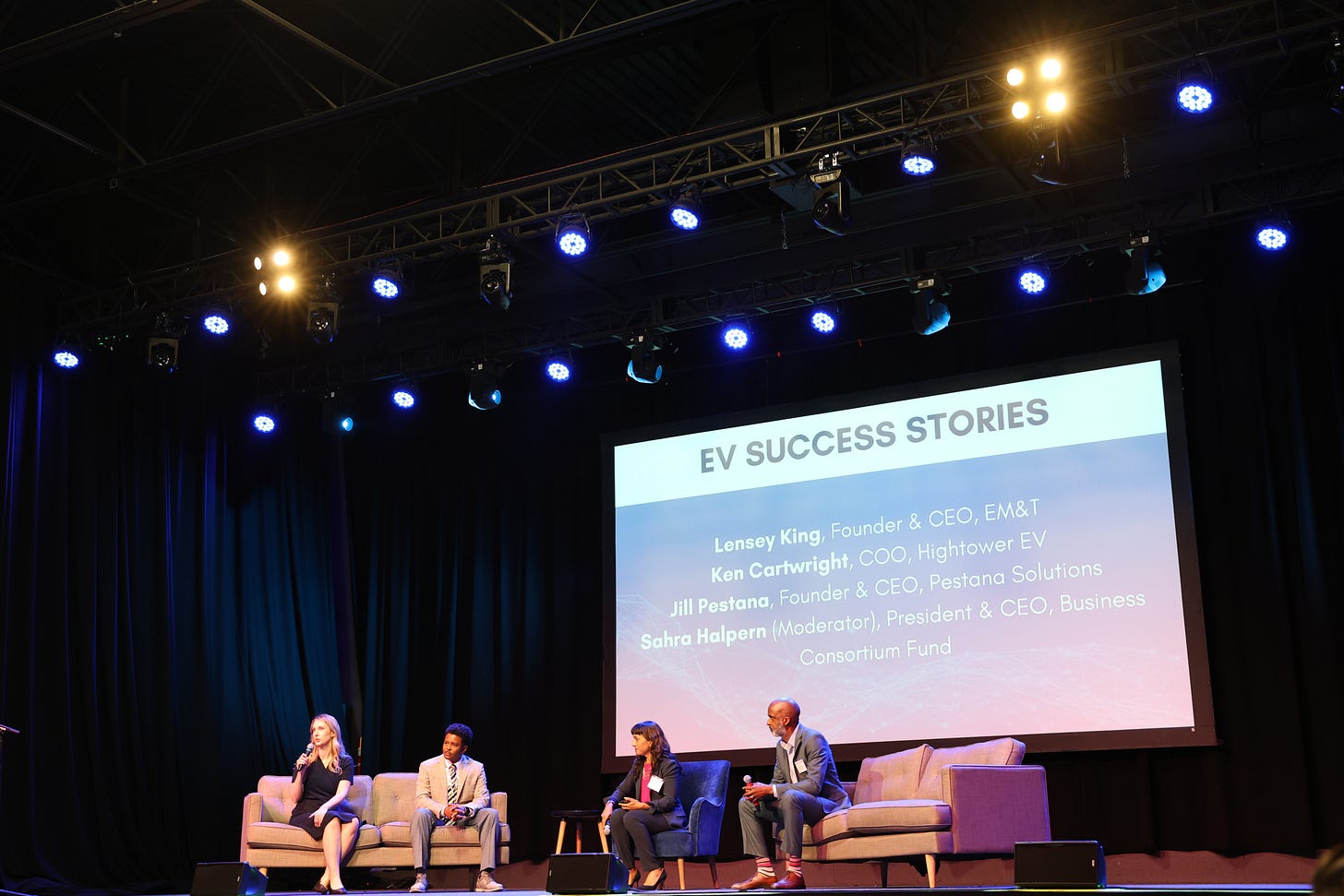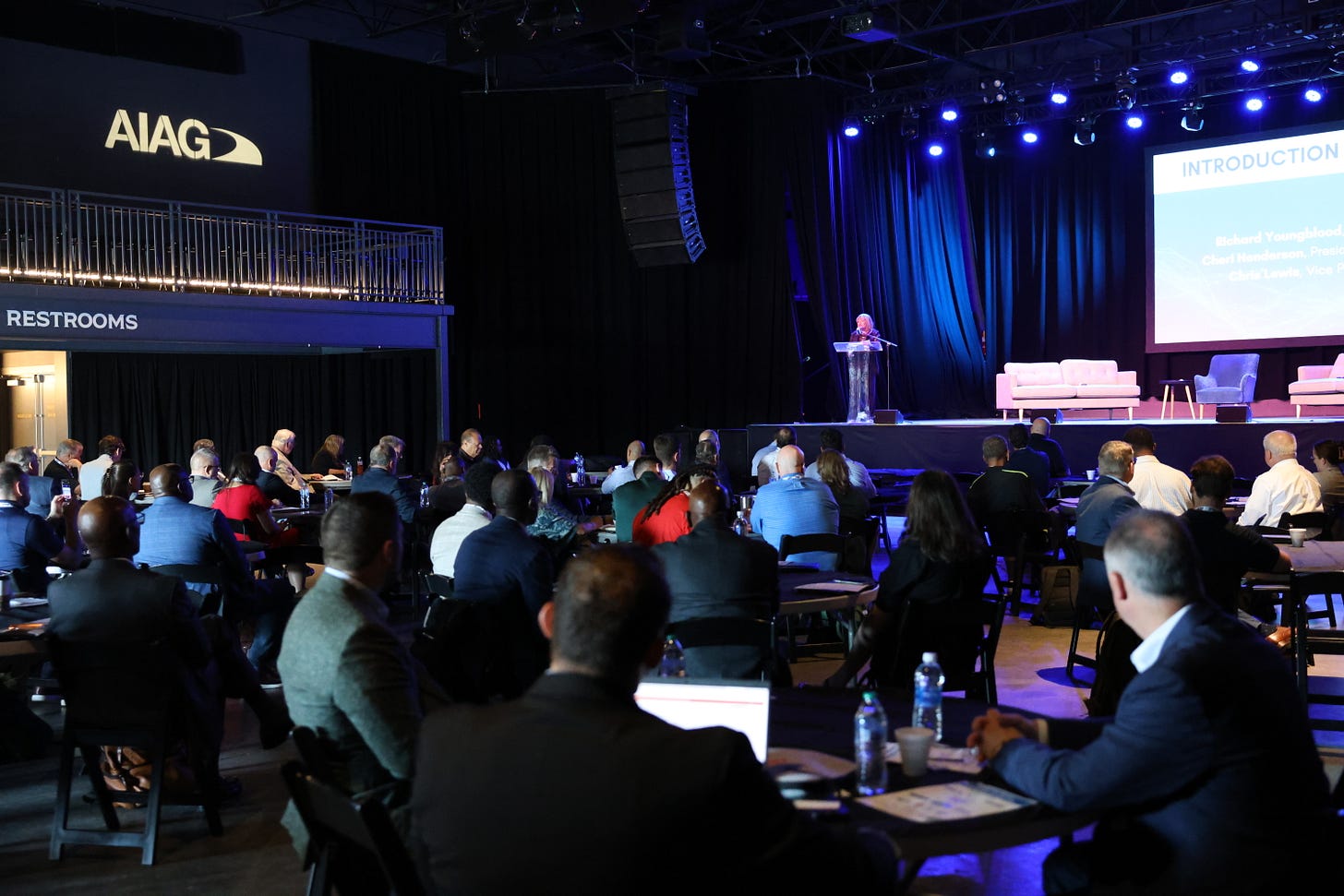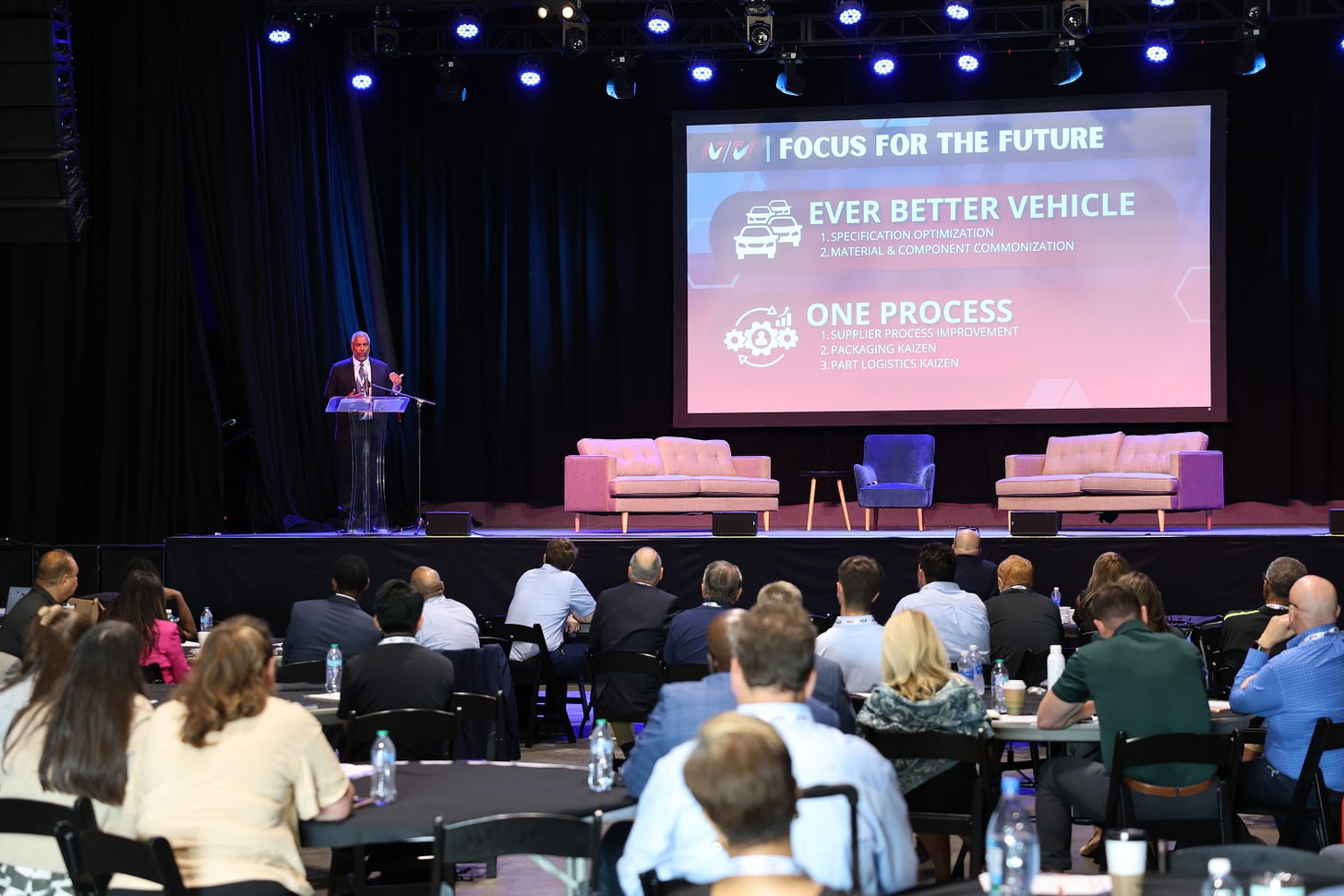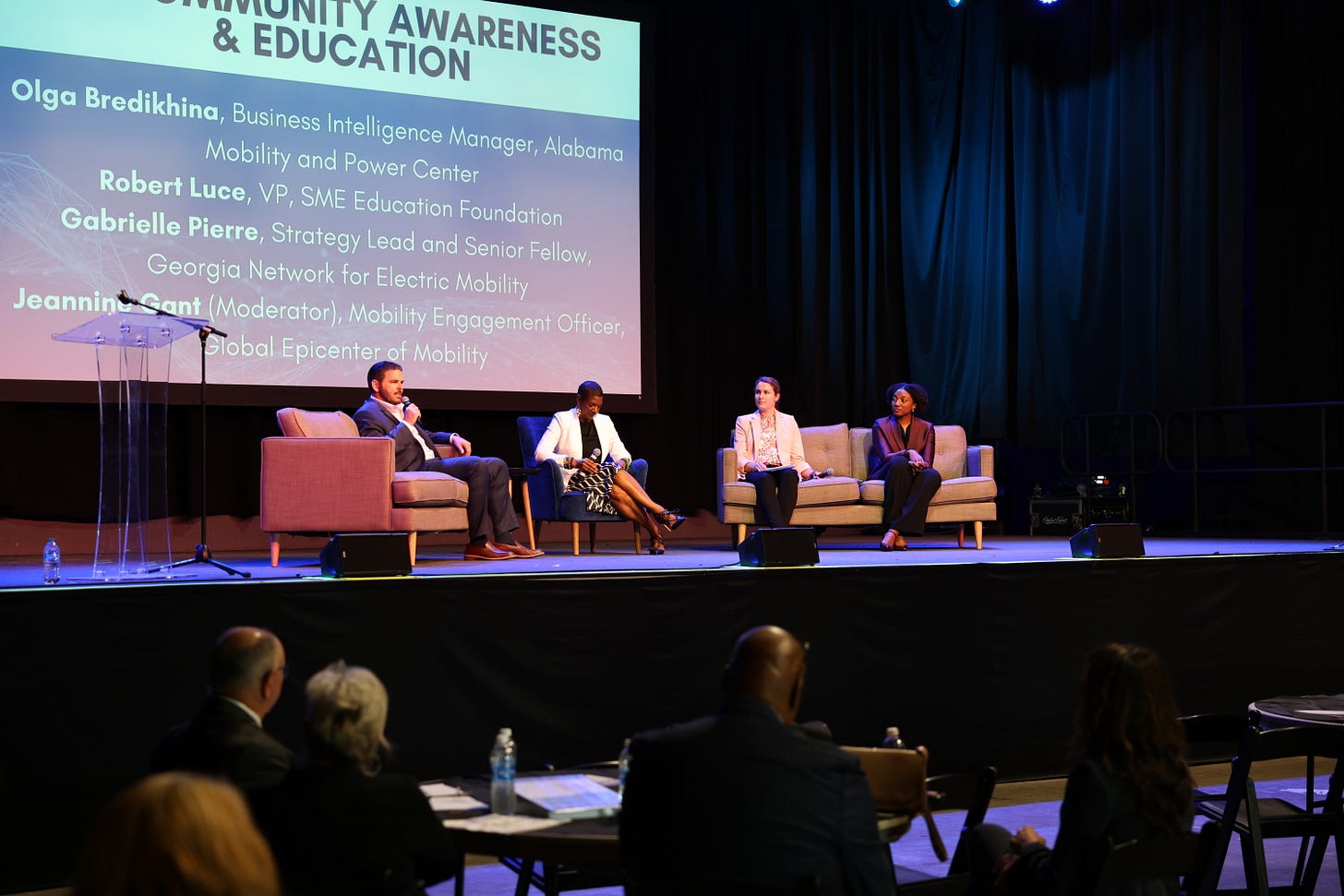What I Learned About the Future of EV Manufacturing in the US
And Why Small Businesses Hold the Key
Last week, I had the privilege of speaking at the EV Small Business Supplier Forum in Chattanooga, and I left feeling more optimistic about our industry's future than I have in months.
Hosted by AIAG, TAMA, and Tristate MSDC, this wasn't your typical conference. It was a gathering designed specifically to empower small businesses navigating the complex world of automotive supply chains. And frankly, it delivered beyond expectations.

The Reality Check We All Needed
Let's start with what everyone's thinking about: tariffs. The volatility is real, and it's making strategic planning feel like throwing darts in the dark. As one panelist put it, "Manufacturing in the US is tough without inputs from other countries." The recent CIT court case developments only add to the uncertainty.
But here's what struck me: the companies thriving right now aren't the ones paralyzed by this volatility; they're the ones building resilience into their operations and focusing on what they can control.
The Threat of Removing IRA Tax Incentives is Not Good for Manufacturing in the US
Despite political noise, the Inflation Reduction Act continues to drive real manufacturing growth in the US. What's particularly encouraging is seeing organizations like SAE actively developing standards to help companies navigate compliance more effectively. Unfortunately, the “One Big, Beautiful Bill” Act currently threatens key parts of the IRA that support this growth.
The traceability requirements aren't just regulatory hurdles, they're building blocks for a more sustainable, circular economy. When we understand where our materials come from, we can make better decisions about recycling, workforce development, and long-term sustainability. That benefits everyone, especially small businesses looking to access tax incentives and compete more effectively.
Rolling back these incentives would be economic self-sabotage. Companies need stability to hire, plan, and invest. The businesses I met in Chattanooga aren't asking for handouts, they're asking for predictable rules so they can build something lasting.

The DEI Conversation We Should Be Having
Here's where the forum got refreshingly honest about something many business events dance around: the economic impact of excluding historically marginalized groups from the supply chain.
This isn't about politics; it's about economics. When we disenfranchise entire communities, we lose economic growth and job opportunities that could lift those communities out of poverty. The small businesses I met understand this intuitively because they've lived it.
The smartest companies are focusing on the business imperative: investing in workplace training, leveraging policy advisors, and recognizing that diversity isn't just morally right. It's strategically smart.
What OEMs Actually Want (Hint: It's Not What You Think)
The panel featuring representatives from Ford, Volvo, VW, and EPB revealed something crucial: OEMs aren't just looking for suppliers who can deliver today, they want partners who can scale quickly and adapt constantly.
Capital, capability, and scalability matter, but so does something harder to quantify: the willingness to learn and invest in new approaches. Small businesses have an advantage here because they can pivot faster than massive corporations.
One strategy that keeps coming up: joint ventures between small businesses before engaging with large manufacturers. It's a way to build capability and credibility simultaneously.
The Government Funding Opportunity Most People Miss
Yes, tariffs are creating headwinds. Some companies are actually closing because of them.
But there's another story: significant funding opportunities through DOT and DOE programs that many small businesses aren't tapping into.
The key isn't just knowing what's available; it's understanding what these agencies actually need versus what they think they need. The most successful small businesses I met have cultivated relationships with program officers and positioned themselves as problem-solvers, not just vendors seeking handouts.
Know your differentiation. Understand your timing. Be visible and vocal about your capabilities. In a crowded market, being the quiet genius in the corner doesn't win contracts.
Capital Readiness: Beyond the Balance Sheet
The banking panel provided a reality check on accessing capital. Yes, credit scores and cash flow matter.
What separates successful small businesses is capital readiness—understanding not just whether you need funding, but whether you're prepared to use it effectively.
The most interesting insight: orient your balance sheet to access capital earlier than you think you'll need it. In a volatile market, having capital available before you desperately need it can make the difference between growth and survival.
What This Means for All of Us
Walking away from Chattanooga, I'm convinced that small businesses aren't just participants in the EV revolution… they're going to lead it. But only if we create the conditions for them to succeed.
That means supporting policies that provide stability and incentives for domestic manufacturing. It means recognizing that sustainability isn't a luxury but a competitive necessity. And it means understanding that diversity and inclusion aren't just moral imperatives. They're economic strategies.
The companies that will thrive in the next decade are those building resilience, investing in relationships, and staying focused on solving real problems for real customers. The volatility feels overwhelming sometimes, but it's also creating opportunities for agile, creative companies to outmaneuver larger, slower competitors.
The Bottom Line
The EV industry is at an inflection point. We can let uncertainty paralyze us, or we can use this moment to build the kind of supply chain that will power sustainable transportation for the next generation.
The small businesses I met in Chattanooga are already making that choice. They're investing in workforce development, building strategic partnerships, and positioning themselves as essential partners rather than just suppliers.
The question isn't whether the EV revolution will happen—it's whether we'll build it in a way that creates broad-based economic opportunity or concentrates benefits in the hands of a few large players.
Based on what I saw last week, I'm betting on the small businesses. They're not just the future of EV manufacturing. They're the key to making that future sustainable, equitable, and resilient.
What's your experience working with small suppliers in the EV space? I'd love to hear what's working, and what isn't, in building these critical partnerships.
And don’t forget to subscribe, share, and leave a review. Your support helps this Substack and the battery industry, grow stronger.
Until next time,
⚡️ Jill Pestana
Want to dig deeper into battery education and training? Visit BatteryCourses.com for courses (coming soon!), resources, company partnerships, and custom solutions.






